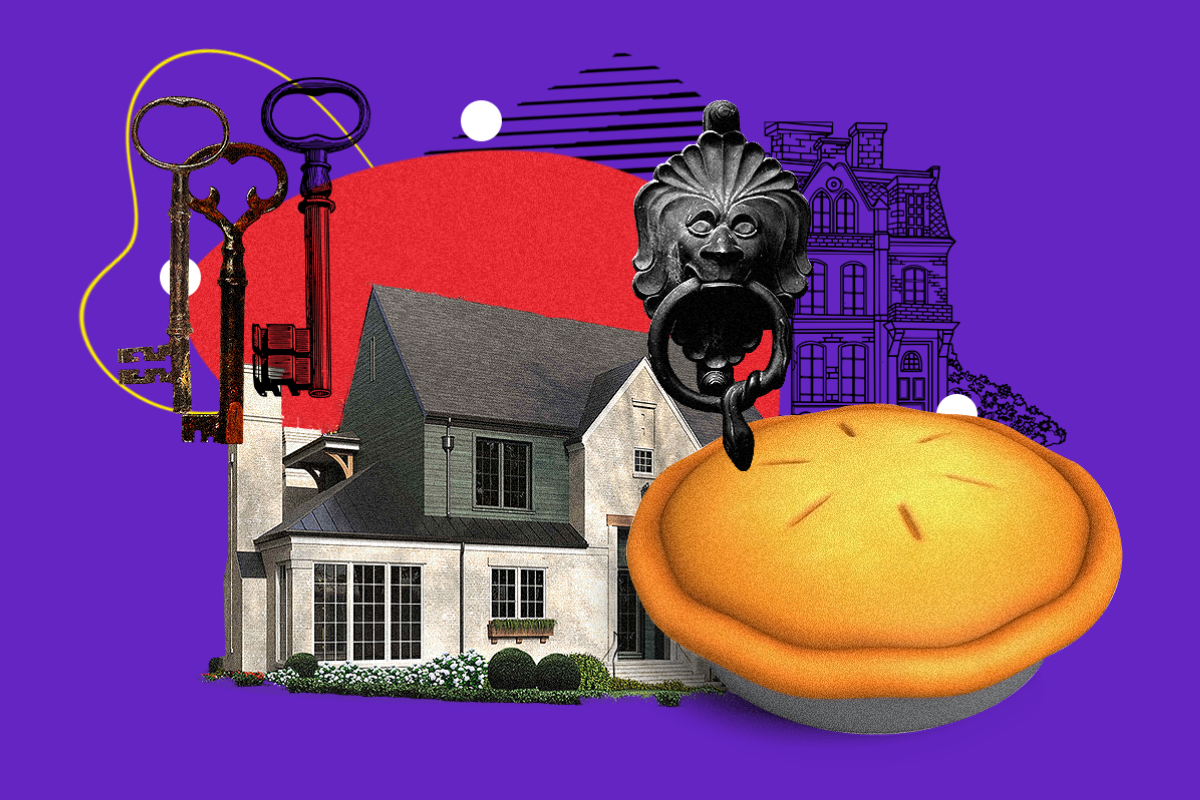Block and Key: A Breakdown of Tokenized Real Estate
Securitized real estate makes investing in a diversity of properties more accessible, but is the next step putting real estate tokens on the blockchain?

Let’s be real: investing in property isn’t for everyone. Sure, homeownership is part of the American dream, but most people’s slice of apple pie is getting slimmer and slimmer as the Fed introduces rate hikes and mortgage rates keep going up.
While REITs and securitized real estate have made property more accessible to retail investors, just tapping into those returns may not be enough for some investors. That’s where tokenized real estate comes in.
There’s no sufficiently decentralized way for investors to tokenize their properties and list them on the open market while ensuring that they’re fully backed by the underlying asset.
Tokenized real estate offers investors more control over how their investment properties are managed. You can think of it as similar to a real estate investment trust (REIT), but rather than investment trust managers calling the shots, investors themselves get a say in how their real estate portfolio is managed. While coordinating hundreds or even thousands of real estate investors simultaneously was nearly unimaginable in the days of timeshare schemes, this innovation is now possible thanks to blockchain technology.
What is tokenized real estate?
| Tokenized Real Estate | Securitized Real Estate |
| Low investment minimums | High investment minimums |
| High liquidity | Low liquidity |
| Decentralized | Highly regulated |
| Actively managed investment | Passive investment |
Tokenized real estate is the securitization of physical properties using tokens on the blockchain. Securitized real estate already exists as a way to distribute ownership of and profit from real estate among several investors, but the required initial investment is substantial, and those who use most popular real estate investing apps have to be willing to lock up their money for a while as their investment gains value.
With a tokenized real estate investing platform like HoneyBricks, on the other hand, investors can resell their tokens on secondary markets, making the investment more liquid. What’s more, all transactions take place on a decentralized blockchain, offering improved security and transparency.
How does tokenized real estate work?
Tokenized real estate platforms leverage blockchain technology to alleviate these issues. For instance, Lofty.ai issues real estate tokens on the Algorand blockchain starting at $50 each, and investors can buy and sell these tokens for practically zero fees. Token holders earn money generated from renting out the property, and they can withdraw their share of the revenue at any time either on the blockchain or to their bank.
Real estate token holders become partial owners of their respective properties and can opt-in to vote alongside fellow token holders on certain decisions regarding the property. However, the involvement of real estate token holders is limited by landlord-tenant laws in the jurisdiction of their property. So, while decisions like increasing rent, evicting tenants, and selling the property can be up to the token holders, things like maintenance and repairs are solved through an automated process and are usually handled by a local property management company.
Investing in tokenized real estate
Investing in tokenized real estate is an easier way to gain exposure to a diversity of rental properties without making a huge investment. Commercial and residential real estate is becoming more lucrative than ever before, but high costs pose barriers to entry for smaller investors. Traditional real estate investing is risky because high exposure to too few properties makes one’s portfolio harder to diversify.
Benefits of tokenized real estate investments
Rather than making large investments into expensive real estate projects, tokenized real estate allows investors to make several smaller investments to diversify and, thus, curb risk. In addition to making money from the appreciation of the value of the property, investors can regularly make passive income through revenue generated from renting the property. Tokenized real estate investments are also less of a hassle to acquire since virtually anyone in the world can buy real estate tokens following approval through a standard KYC process.
Tokenized real estate and governance
Finally, each tokenized real estate project is practically its own decentralized autonomous organization where each token represents a vote on decisions made collectively by the investors. Even if investors choose not to take an active role as property owners, the broader value proposition of being cheaper and more accessible is what makes tokenized real estate so much more attractive to retail investors than traditional avenues of investment.
Can I tokenize my real estate?
The ability to tokenize real estate properties is easier and more accessible than ever. Platforms like T-Rex and DigiShares enable real estate owners to mint, deploy, and issue security tokens backed by their property. These companies allow investors to issue public or private securities on the blockchain that are compliant with local regulations. They also provide secure tools to manage token supply and investor allocation.
Should I tokenize my real estate?
While tokenizing one’s real estate is a unique way to offload a real estate investment while maintaining some equity, certain drawbacks may cause owners to think twice. First, the marketplace for tokenized real estate is not exactly free or open to all investors. Platforms are still in the developing stages, and the industry still exists in a regulatory gray area. Another way of looking at it is that there’s no sufficiently decentralized way for investors to tokenize their properties and list them on the open market while ensuring that they’re fully backed by the underlying asset.
The lack of decentralization notwithstanding, there are still many restrictions in the tokenized real estate market. For instance, tokenized real estate investments are inaccessible to individuals from certain jurisdictions. Another example is how Lofty.ai exclusively sources all the property listed on the platform from just five pre-approved sellers. Rigid regulations combined with the fact that tokenized real estate is still in its infancy means that it’s yet to be an effective substitute for regulated real estate securities.
